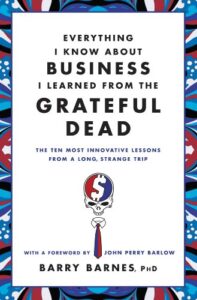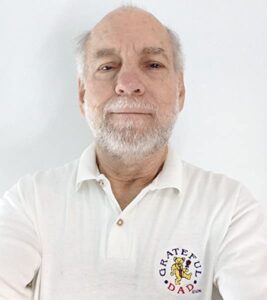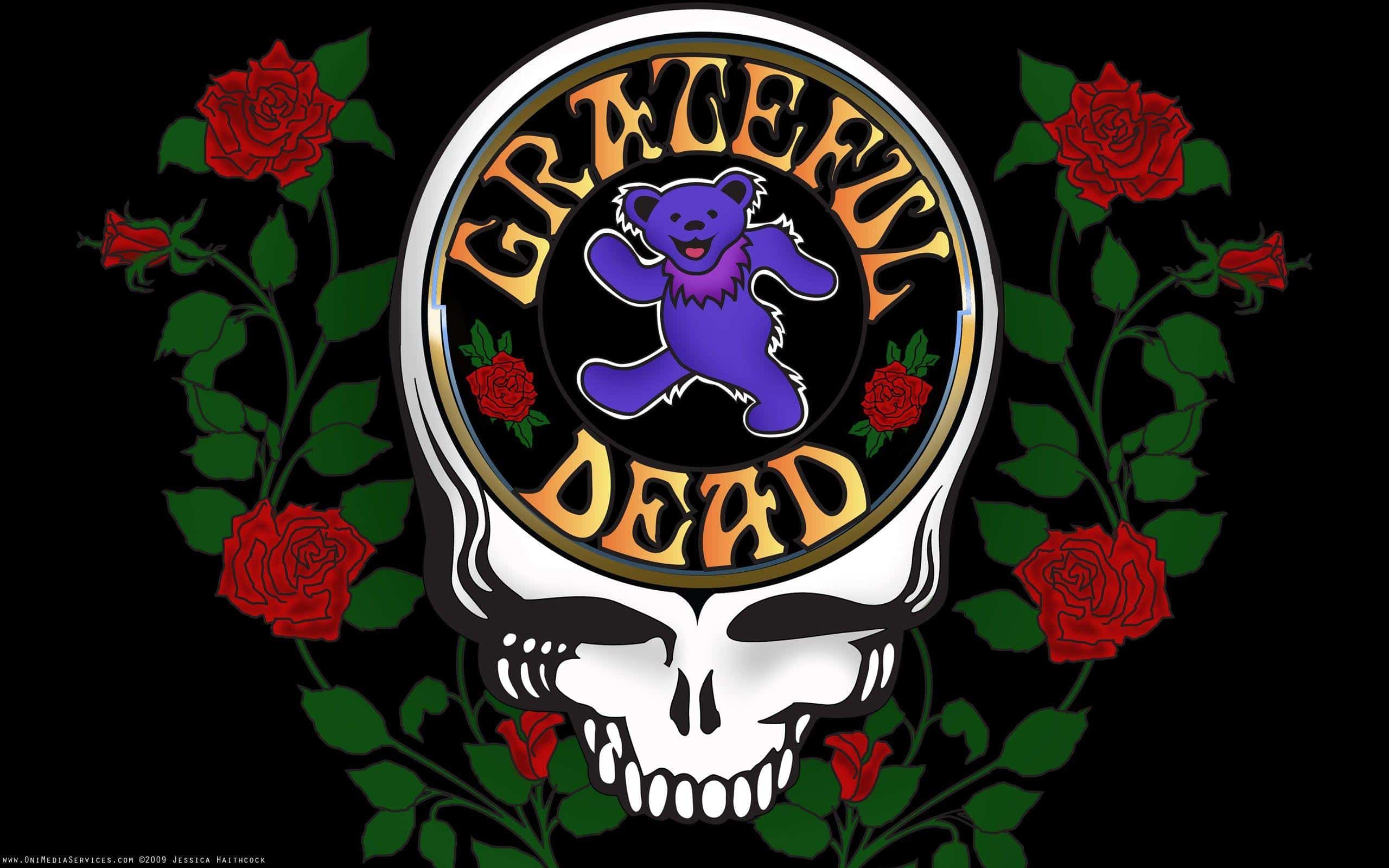Dr. Barry Barnes has been on a long, strange trip for more than 30 years. A distinguished professor and Chair of Leadership at Florida’s Nova Southeastern University for decades, he’s well-versed in teaching graduate-level studies in leadership, strategy and innovation. All very impressive but not necessarily off-beat. Dr. Barnes’ more unique perspectives, however, come from his great pride in being a Dead Head (a devoted follower of The Grateful Dead). But he doesn’t just listen to the band’s music, he learns from it. In fact, he claims The Dead pretty much wrote the book on business studies, which in turn led him to write his own book: Everything I Know About Business I Learned from the Grateful Dead: The Ten Most Innovative Lessons from a Long, Strange Trip. The good doctor recently spent some time with WellWell discussing the group’s pioneering practices and how they should be applied to Corporate America, social responsibility and everyday life.
You mentioned that the first time you heard the Grateful Dead, you weren’t really into them. It wasn’t until years later that you began to appreciate them. What was it about their music that takes time to fully enjoy?
Well, I think it was that particular recording. It was their first studio album and even to this day, it’s not their best album, far from being their best album. I think that’s the reason why. If you pick any other album of theirs and it’s done in the studio, I would’ve said, “Oh, this is a whole different thing.” So, it just happened to be that album more than anything else, I wrote them off. It took me quite a while to, I think it was probably not until I opened my record store that I started listening to some of their live albums, and that started to make sense to me. I was like, “Oh, gee wiz! Ok.”
When did you first start to connect the Grateful Dead with business advice?
Well, I think it was in ‘85. I went to see their 20th-anniversary shows in Berkeley, California at the Greek Theater and I had just finished my MBA and so I thought in more business terms at that particular point in time. I was able to get tickets because of the way they reached out to their customers. They made it easy. You have to remember this is 1985, so there was no internet, there was no Ticketmaster, there was nothing that we take for granted today. So, they clued me in advance about these tickets that were going to go on sale and then there was an 800-Number where you would call in and order them. So even though I lived in Kansas City and had no direct access to something like Ticketmaster, I was able to get tickets. And so that really got to me. Customer service really popped into my head at that particular point in time. And as I really grew with the music, I realized it’s all about dancing, it’s all about movement, it’s all about feeding back your delight and joy into the band itself that feeds off of the audience. It’s just this closed loop of energy pumping each other up.
A lot of people have written about Ticketmaster…how difficult it is to circumvent the Ticketmaster scalper business because of the hold it has on the industry. Do you think this will limit the ability for the next Grateful Dead to be able to take advantage of advice like that?
Well, l think there are already several new Grateful Deads out there performing. Dead & Company is certainly one of them. JRAD, Joe Russo’s Almost Dead, Dark Star Orchestra, you can include them I think, Phil Lesh and Friends and his family band, plus, there are over 300 cover bands in the U.S. So, they draw the local audience typically anyway. Interestingly enough, I just got a postcard yesterday with what they call a class action suit. I had a hell of a time getting a refund from Ticketmaster because Dead & Company shows were canceled last year because of the pandemic. This was a class-action suit because of their horrible, horrible practices and the way they screwed people. I’m not sure what the future will hold but so far, it doesn’t look like it, you know, as much as I hate to deal with Ticketmaster and I did to get tickets for the upcoming Dead & Company shows this fall. But you know, figures crossed, I don’t know. I don’t like them.
So, we’re talking about how disliked Ticketmaster is and how reluctant people have been to support them. But then if you talk about the Grateful Dead, people are just totally psyched to be giving money to them. It there a lesson in that? When you’re good to your fans and your customers, they feel excited to support your business?
Definitely, definitely true. Absolutely. So, it’s kind of a conundrum. And again, you know, certainly, when they were there until ‘95, they had their own ticket service that they sold tickets to before they went on sale at Ticketmaster. Ticketmaster wasn’t nearly as powerful as it is now, unfortunately. I’m sorry to see it still. What are we going to do?
You mention how Grateful Dead lives by its values. The band did well because they would do good and they would support the causes that they really believed in. You see a lot of companies now that will attempt this. Do you think that customers can sus out when a company’s being genuine or not?
You bet. Well, we can see it all the time. The larger the organization, the more likely they are to be doing it because it looks good. But as a millennial yourself, I know that you’re sussing it out yourself because this is one of the things that Gen-Z and millennials do. It’s really important to them to make a difference in the world and to be socially conscious and think about the collective good. I know that their instincts are there, they pay attention to it and social media helps them do that among other things. So yeah, I think it does happen. I bet that those values are incredibly important. I was just reading an article in BusinessWeek on Exxon and how they had some new board members who are forcing changes at Exxon, this huge oil company, to think beyond the oil business They’ve got to be more green and think about what they are going to do after we can’t pump any more oil. So yeah, it’s happening. It’s a slow, slow evolutionary process.
This leads to other lessons that you’ve talked about, which is the ability to adapt and the ability to improvise. How crucial is that for a company? Especially a company like an oil company where there’s a clear deadline on how long they’re going to be successful.
Exactly, right. Well, it’s usually important. I just wrote an 8,800-word essay about the legacy of The Grateful Dead and how those lessons apply today. And again, the larger Fortune 500 companies forget these lessons. It ain’t going to happen, all right. I understand that I never intended it to be for those organizations because they’re top-down, they’re rigid, they’re command-and-control organizations typically. When you get to be that big, which is dangerous in itself, it makes you more rigid and you’re facing a higher risk when things change quickly. So, improvisation requires that you trust the people that you’re working with. It means that you’ve got to listen continually to your other colleagues. It means that you’ve got to share what you’re doing and your resources and that means that you also have to shift leadership as things change rapidly. We’re in an environment now where everything in the external world as well as the internal workings of your organization are changing rapidly and unexpectedly, so you better be able to do some kind of improvisation. This is what The Grateful Dead did. They’ve built their organizational structure the same way that they play music—and they did it so that they can turn on a dime, just like their music did. That they can adapt and avoid the top-down, professional business model.
You mentioned leadership. In the book, you write about Jerry Garcia almost being a reluctant hero, a reluctant leader. How much did that leadership and that command without demanding have on business?
Well, first he was incredibly charismatic. At the same time, Steve Jobs was incredibly charismatic too. I wrote another paper years back comparing the two leaders, Garcia and Jobs because they had a lot in common. Both from the Bay area, both loved to do LSD early on, both went to the top of their organization and created a whole new structure. So essentially, Garcia was just an incredibly magnetic, charismatic, lively guy who was incredibly intuitive, as was Steve Jobs. But Garcia was afraid of the power that he had. And that’s why he was a reluctant leader. He didn’t want to insist that things went his way, he wanted everybody involved in the process. I think because he didn’t want to be responsible for the results of planning on his own. So, he laid back to encourage this sharing of the leadership responsibility and it worked. He was also such an amazing musician himself, as was everybody in the band. All the people that they hired were typically friends or in the same business, so they understood that they shared the same values.
What personal advice can people learn from The Grateful Dead that goes beyond business?
Be yourself, be improvisational and I’ll tell you what, having been a professor for a significant part of my adult life, I learned to improvise. I relied on improvisation in my life, expecting things to change or not, it’s not that I didn’t plan for the future because I certainly did. In the classroom, I felt like I was Jerry Garcia. I could conduct the class in a way that got everybody involved, everybody sharing. So, certainly, be yourself, have good values, live by your values, make it clear to people what your values are and live by those.
 About Barry Barnes
About Barry Barnes
Barry Barnes, Ph.D., is the Chair of Leadership at Nova Southeastern University in Fort Lauderdale, Florida. He teaches graduate-level courses in leadership, strategic decision-making and organizational behavior. His research and writing focus on the relationship between leadership, organizational change and strategy, as well as the innovative and improvisational business practices of the legendary rock band The Grateful Dead. He received his MBA from the University of Missouri-Kansas City and his Ph.D. from The University of Kansas.
Everything I Know About Business I Learned from the Grateful Dead: The Ten Most Innovative Lessons from a Long, Strange Trip can be purchased at Amazon.













